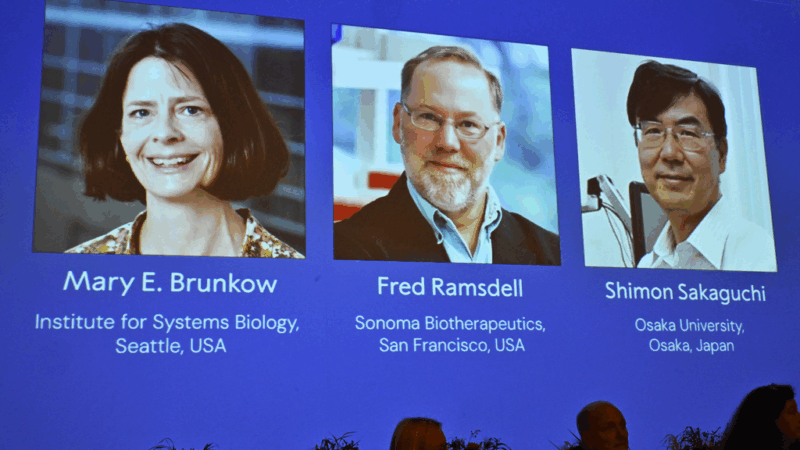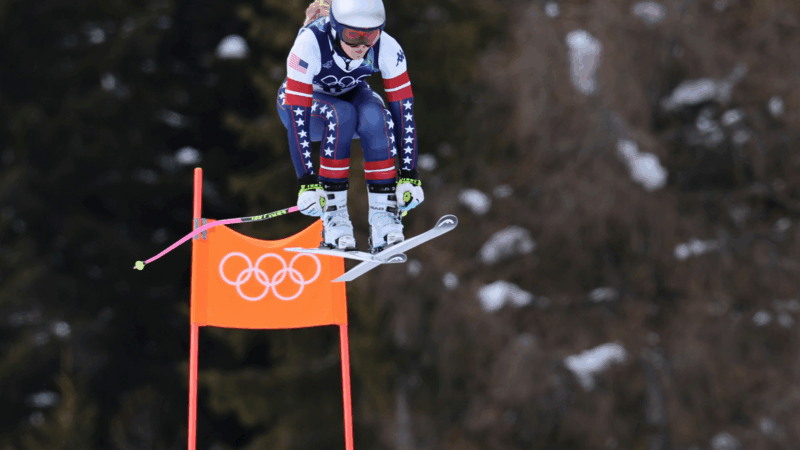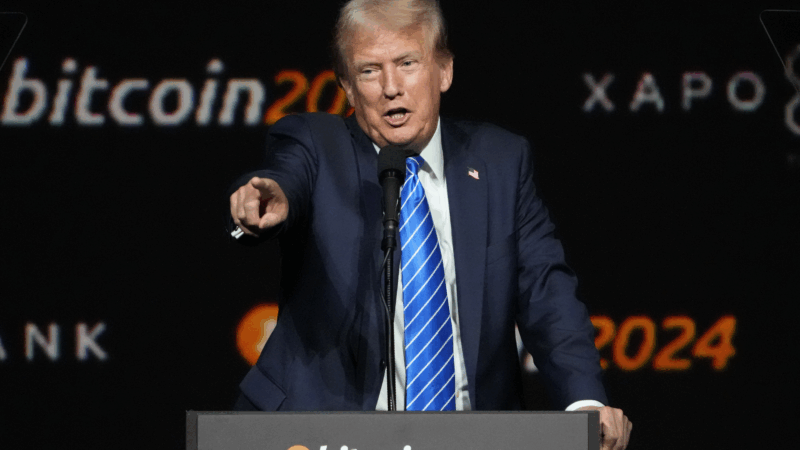The medicine Nobel Prize goes to 3 scientists for work on peripheral immune tolerance
STOCKHOLM — Mary E. Brunkow, Fred Ramsdell and Shimon Sakaguchi won the Nobel Prize in medicine on Monday for their discoveries concerning peripheral immune tolerance.
Brunkow is a senior program manager at the Institute for Systems Biology in Seattle. Ramsdell is a scientific adviser for Sonoma Biotherapeutics in San Francisco. Sakaguchi is a distinguished professor at the Immunology Frontier Research Center at Osaka University in Japan.
Peripheral immune tolerance is one way the body helps keep the immune system from getting out of whack and attacking its own tissues instead of foreign invaders.
Their work dates back to 1995, when Sakaguchi made the first key discovery. Brunkow and Ramsdell made another breakthrough in 2001 and Sakaguchi linked all of their work two years later.
“The laureates’ discoveries launched the field of peripheral tolerance, spurring the development of medical treatments for cancer and autoimmune diseases,” the Nobel Assembly said in a news release. “This may also lead to more successful transplantations. Several of these treatments are now undergoing clinical trials.”
Thomas Perlmann, Secretary-General of the Nobel Committee, said he was only able to reach Sakaguchi by phone Monday morning. He left voicemails for Brunkow and Ramsdell.
The award is the first of the 2025 Nobel Prize announcements and was announced by a panel at the Karolinska Institute in Stockholm.
Last year’s prize was shared by Americans Victor Ambros and Gary Ruvkun for their discovery of microRNA, tiny bits of genetic material that serve as on and off switches inside cells that help control what the cells do and when they do it.
Nobel announcements continue with the physics prize on Tuesday, chemistry on Wednesday and literature on Thursday. The Nobel Peace Prize will be announced Friday and the Nobel Memorial Prize in economics Oct. 13.
The award ceremony will be held Dec. 10, the anniversary of the death of Alfred Nobel, who founded the prizes. Nobel was a wealthy Swedish industrialist and the inventor of dynamite. He died in 1896.
In this Icelandic drama, a couple quietly drifts apart
Icelandic director Hlynur Pálmason weaves scenes of quiet domestic life against the backdrop of an arresting landscape in his newest film.
After the Fall: How Olympic figure skaters soar after stumbling on the ice
Olympic figure skating is often seems to take athletes to the very edge of perfection, but even the greatest stumble and fall. How do they pull themselves together again on the biggest world stage? Toughness, poise and practice.
They’re cured of leprosy. Why do they still live in leprosy colonies?
Leprosy is one of the least contagious diseases around — and perhaps one of the most misunderstood. The colonies are relics of a not-too-distant past when those diagnosed with leprosy were exiled.
This season, ‘The Pitt’ is about what doesn’t happen in one day
The first season of The Pitt was about acute problems. The second is about chronic ones.
Lindsey Vonn is set to ski the Olympic downhill race with a torn ACL. How?
An ACL tear would keep almost any other athlete from competing -- but not Lindsey Vonn, the 41-year-old superstar skier who is determined to cap off an incredible comeback from retirement with one last shot at an Olympic medal.
Trump promised a crypto revolution. So why is bitcoin crashing?
Trump got elected promising to usher in a crypto revolution. More than a year later, bitcoin's price has come tumbling down. What happened?







